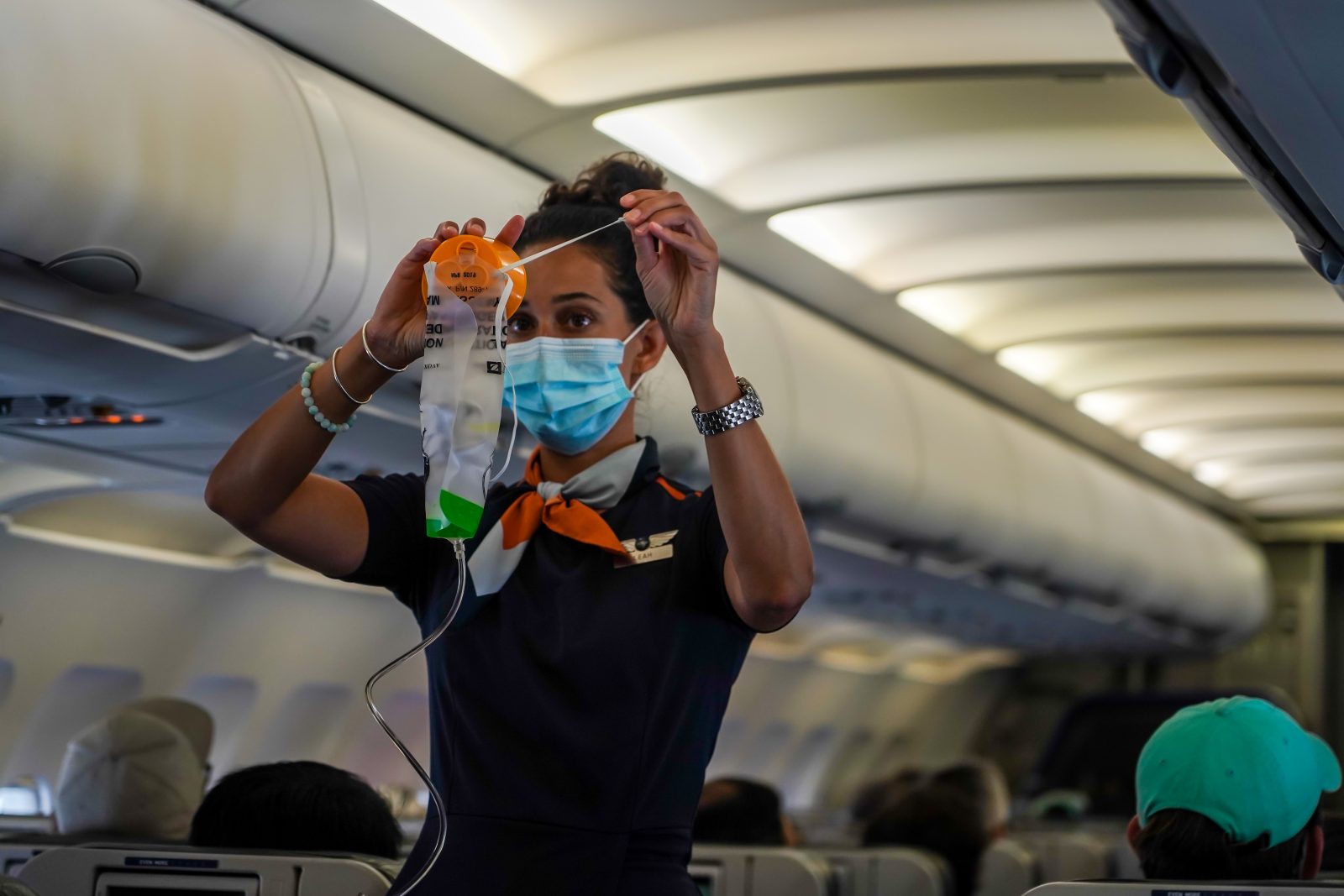
Unless extended, the federal face mask mandate will end in…
The federal face mask mandate which covers public transport and transportation hubs could end on April 18 after the Centers for Disease Control and Prevention (CDC) recommended just a one month extension to the current mandate.
Charged with enforcing the mandate, the Transporation Security Administration (TSA) confirmed the news on Thursday, saying it would use the time to work on a revised framework which could see the mandate scrapped or, at the very least, significantly eased.
“CDC will work with government agencies to help inform a revised policy framework for when, and under what circumstances, masks should be required in the public transportation corridor,” the federal agency said in a statement.
“This revised framework will be based on the COVID-19 community levels, risk of new variants, national data, and the latest science. We will communicate any updates publicly if and/or when they change.”
If, as is now strongly suggested, the mask mandate is going to be based on the CDC’s community levels framework, then there is the genuine possibility that compulsory mask-wearing is abandoned for the vast majority of domestic flights.
That system, however, could create genuine confusion. The ‘Community Levels’ guidelines create three tiers of recommendations which don’t just look at the number of cases and test positivity but also considers factors like hospitalizations and hospital capacity.
People who live in counties that are deemed to be at high risk are still encouraged to wear a mask indoors in public. According to the latest CDC stats, there are currently 195 U.S. counties in the high-risk category where indoor masking is recommended.
That could mean, therefore, that flights serving these counties would require mandatory masking. What’s more, these rules could change whenever the CDC updates its list of High Risk counties.
Thankfully, the current list of High-Risk locations don’t host any major airports, which would make removing masking rules for domestic flights easier, but similar rules could be drawn up for international destinations based on the CDC’s destination-specific travel recommendations.
Taking those recommendations into account, most of the world is currently listed in the top Level 4 tier. U.S. citizens are advised not to travel to these destinations at all, and if they do choose to travel, then the CDC recommends wearing a face mask in all public areas.
Which makes for a pretty tricky situation for individual airlines.
So, even when the CDC does lift the mask mandate (in some form or another) don’t expect a major or immediate shift in position from the airlines.
Instead, carriers are likely to defer to international guidance from the likes of the UN’s civil aviation organization (ICAO) and World Health Organization (WHO), as well as regional bodies like Europe’s air safety regulator (EASA).
The international consensus is clear – masks should be mandatory for most passengers on all flights regardless of the local risk level.
Airlines could, however, use this opportunity to significantly ease their own masking rules. The minimum age for mask wearing could be raised from two years old to at least six or even nine years old, while medically exempt passengers could be allowed to self-certify their exemption.
The latter option would be a de facto end to the mask mandate, which would allow airlines to court passengers who feel safer with compulsory mask wearing while removing the tension that has so often ensued with the current rigid rules.
At the same time, airlines could also instruct flight attendants and other frontline staffers to take a hands off approach, while encouraging vulnerable passengers to wear an N95 or KN95 mask which is better equipped to protect the wearer when those around them are unmasked.
The CDC and the airlines have just over a month to work out the answer to these questions. Will they manage to?
Mateusz Maszczynski honed his skills as an international flight attendant at the most prominent airline in the Middle East and has been flying ever since... most recently for a well known European airline. Matt is passionate about the aviation industry and has become an expert in passenger experience and human-centric stories. Always keeping an ear close to the ground, Matt's industry insights, analysis and news coverage is frequently relied upon by some of the biggest names in journalism.








They will all fall in line here in the US when Southwest drops the chin diapers the moment the federal tyrants end the chin diaper requirement. Let’s hope Senator Rand Paul forces a vote to end this idiodic nonsense before April 18th.
AA has told employees the literal second the govt stops it, they will too. I’m curious if United, the aviation bully to its employees, will continue.
Masks don’t work. Make note of the names of anyone trying to improve their neurotic impulses on the rest of us. We need their heads on pitchforks when this is all over.
Who voted for this mandate? Nobody.
Clearly you dont understand the power of cancel culture. Airlines will drop the masks. Didnt they brag about how clean and safe their “air” is?